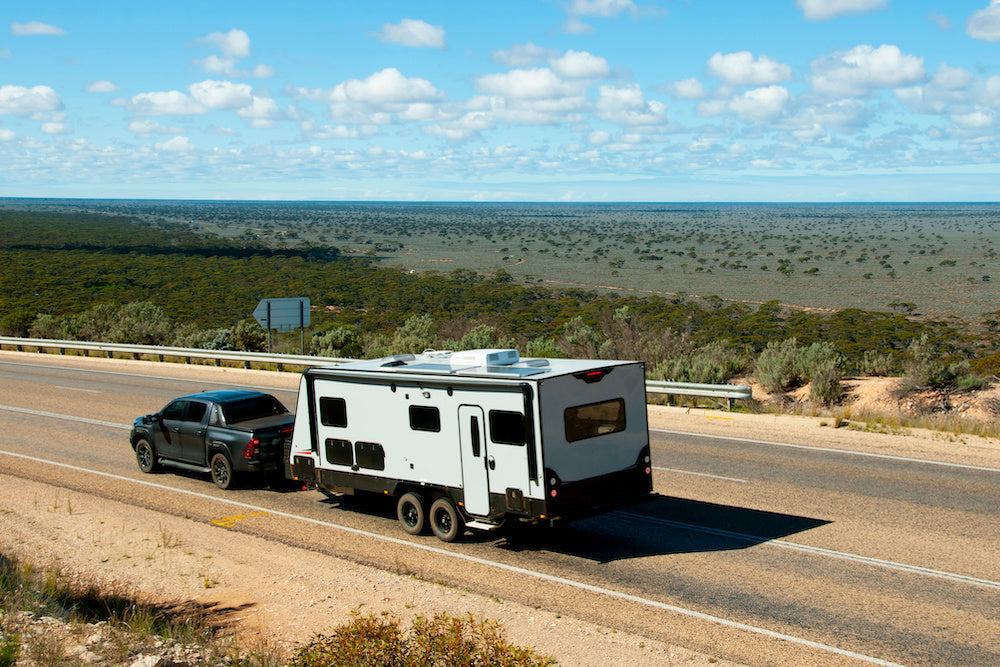If you’ve ever towed a trailer and felt like it was dancing behind you, bobbing up and down no matter how smooth the road seemed, you’ve experienced trailer bounce. It’s more than just an annoying shake; trailer bounce can lead to instability, loss of control, and damage to both your trailer and tow vehicle.
Let’s break down what causes trailer bounce, why it happens, and most importantly: how to prevent it.
What Is Trailer Bounce?
Trailer bounce happens when the trailer's suspension system reacts poorly to the road, causing the trailer to bounce vertically while towing. You’ll usually notice it more on smoother highways where there's less natural resistance. This bounce often occurs at specific speeds and can feel like the trailer is on a trampoline.
Why Does It Happen?
Several factors can contribute to trailer bounce:
Tongue Weight Is Too Low
One of the most common causes is improper tongue weight. If the tongue weight is less than 10–15% of the trailer’s total weight, your trailer won’t track properly and will start to bounce. Too little weight on the hitch creates a teeter-totter effect.
Stiff or Oversized Trailer Suspension
Some trailers come with leaf springs or suspension systems designed for heavier loads. When the trailer is under-loaded or empty, that stiff suspension doesn’t compress properly, leading to more bounce.
Tire Pressure Issues
Overinflated trailer tires may seem like a good idea, but they reduce shock absorption. That means more of the road's movement gets transferred directly into the trailer, increasing bounce.
Load Distribution Problems
If your cargo isn’t evenly distributed, the imbalance can lead to weight shifts that make bouncing worse, especially when hitting dips or bumps.
How to Prevent Trailer Bounce
Now that you know what causes it, here’s how to fix and prevent trailer bounce:
Check and Adjust Tongue Weight
Make sure the tongue weight is about 10–15% of the trailer’s total loaded weight. You can use a tongue weight scale to confirm this. Adding more weight toward the front of the trailer may help if it's too light.
Add a Weight Distribution Hitch
These hitches help level your setup and shift some tongue weight to the tow vehicle's front axle, reducing bounce and sway.
Balance the Load Properly
Evenly distribute cargo across the trailer and secure it to prevent shifting during transit. Heavier items should go low and near the center/front of the trailer.
Adjust Tire Pressure
Stick to the manufacturer’s recommended PSI for your trailer tires. Too much air reduces flexibility; too little can cause heat buildup and blowouts.
Consider Shock Absorbers or Suspension Upgrades
If you're dealing with persistent bounce, adding aftermarket shocks or switching to a softer suspension system can help absorb more of the road’s movement.
Bounce Today, Damage Tomorrow
Don’t underestimate trailer bounce. It not only makes towing uncomfortable but can shorten the lifespan of your trailer, cargo, and hitch system. It may also affect your braking distance and cornering ability. By addressing the root causes early, you’ll be protecting your gear, your vehicle, and your safety.
Smooth Towing Starts With Smart Setup
The good news? Trailer bounce isn’t something you have to live with. A few key adjustments, checking weight, improving balance, and upgrading equipment, can go a long way in creating a smooth, stable towing experience.
And if you’re backing into tight spaces or need precision movement for hookup, Trailer Valet movers can also help reduce unnecessary jolts and strain on your system.

